India in a changing global order
This speech was delivered at ‘Industry Meet 2018’, organised by the Indian Institute of Management, Indore, in collaboration with the Ministry of External Affairs, Government of India, on 7 July 2018
 Courtesy: IIM, Indore
Courtesy: IIM, Indore
This speech was delivered at ‘Industry Meet 2018’, organised by the Indian Institute of Management, Indore, in collaboration with the Ministry of External Affairs, Government of India, on 7 July 2018
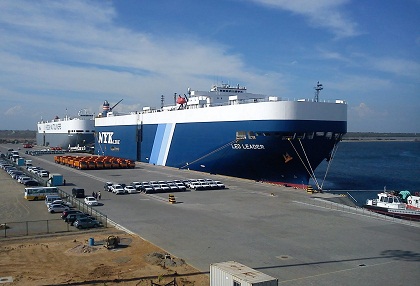 Courtesy: Wikipedia
Courtesy: Wikipedia
The high cost and political impact of Chinese-funded infrastructure in countries like Myanmar, Malaysia and Sri Lanka make it imperative for India to work with Japan to provide alternatives, to ensure that the region is neither bankrupted nor militarised by Chinese influence.
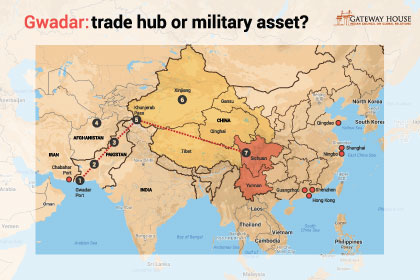 Courtesy: Gateway House
Courtesy: Gateway House
China’s ostensible intentions are to turn Gwadar port into a focal point of the China Pakistan Economic Corridor. But the geography of the region is a major stumbling block in the realisation of these ambitions and raises questions about the project’s underlying motives
Gateway House spoke to Toshinori Doi, President, Policy Research Institute, Japan, on the sidelines of the Gateway of India Geoeconomic Dialogue, on the risks associated with digitising finance, the Belt and Road Initiative and dealing with Chinese market dominance
India and the world have watched China’s growing investment in Asia and beyond with a mix of awe and apprehension. The unprecedented scale of these investments are reshaping political arrangements around South Asia.
 Courtesy: Gateway House
Courtesy: Gateway House
China’s investment in Bangladesh’s stock exchange gives Beijing a chance to shape the financial architecture of the most vibrant economy in India’s neighbourhood
 Courtesy: New York Times
Courtesy: New York Times
The crisis in the Maldives is a case study of Chinese investments undermining democratic institutions in smaller countries. It poses long term threats to India’s economic and political security. And almost overnight, it has turned the Indian Ocean into the Indo-Pacific
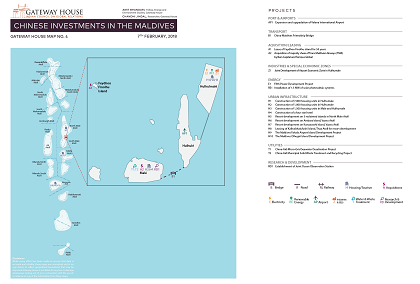 Courtesy: Gateway House
Courtesy: Gateway House
With large investments in local infrastructure and tourism, China has become a key player in Maldivian politics
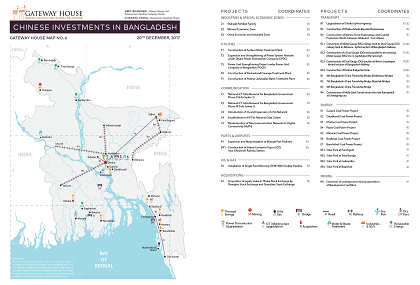 Courtesy: Gateway House
Courtesy: Gateway House
China’s investment in Bangladesh’s stock exchange gives Beijing a chance to shape the financial architecture of the most vibrant economy in India’s neighbourhood
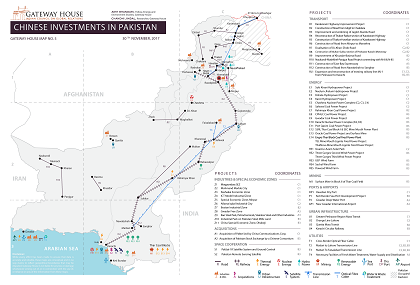 Courtesy: Gateway House
Courtesy: Gateway House
The China-Pakistan Economic Corridor is a strategic play by China disguised as an economic corridor. It may bring some economic benefits to Pakistan in the short run, but will almost certainly cost the country – and India – a big political price in the long run